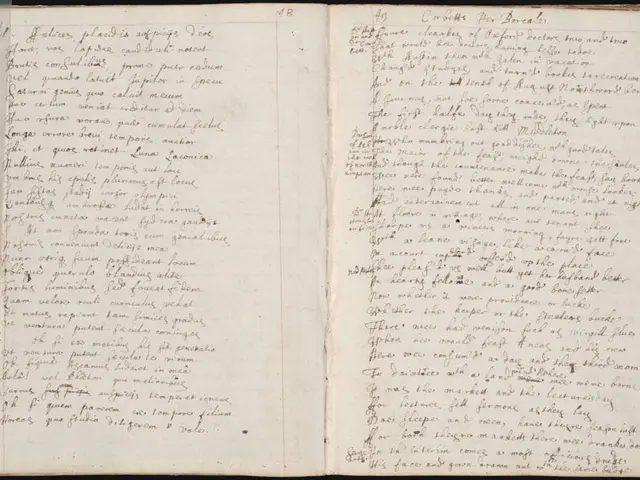Forensic Pioneer: Highlighting the Achievements of Paul Kirk
**Paul Leland Kirk: Pioneer in Forensic Science**
Paul Leland Kirk, a prominent American criminologist and forensic scientist, made significant strides in establishing forensic science as a distinct and scientifically rigorous field. Known for his groundbreaking work in crime scene investigation and evidence analysis, Kirk's contributions have left a lasting impact on the world of criminology.
During his 43-year tenure at the University of California, Berkeley, Kirk played a crucial role in the development of forensic science. He emphasized the importance of scientific methods in crime scene investigation and evidence analysis, and his teachings influenced generations of forensic scientists and criminologists.
One of Kirk's most notable achievements was the development of techniques for reconstructing crime scenes, which significantly improved the accuracy of criminal investigations. His work in analyzing evidence, such as bloodstains and other physical evidence, led to the development of forensic techniques that are still used today.
Kirk was also a prolific writer, authoring over 250 articles on subjects ranging from biology to criminalistics. His books, including "Crime Investigation: Physical Evidence and the Police Laboratory" and "Crime Investigation", provided valuable insights into the field of forensic science.
In the high-profile Dr. Sam Sheppard case, Kirk's examination of blood splatters led him to conclude that Sheppard could not have committed the crime. During Sheppard's retrial, Kirk's testimony significantly benefited the defense, and Sheppard was ultimately found not guilty.
Kirk was a firm believer in Locard's exchange principle, which states that during the commission of a crime, there is always a transfer of physical evidence between the criminal and the crime scene. This belief guided his work and helped him develop innovative techniques for analyzing evidence.
In addition to his work in the field, Kirk founded the first academic criminalistics program in the country. His dedication to offering expert advice on criminal matters made him a valuable asset in several criminal cases, including the Sam Sheppard murder trial.
Paul Leland Kirk's pioneering work in forensic science has left an indelible mark on the field. His contributions to crime scene reconstruction, evidence analysis, and the development of forensic techniques have significantly improved the accuracy of criminal investigations. Kirk's legacy continues to inspire forensic scientists and criminologists today.
Discussing Paul Leland Kirk's impact on education and self-development, his teachings at the University of California, Berkeley emphasized the integration of science in crime scene investigation, inspiring future generations of forensic scientists and criminologists. In the realm of general news and crime-and-justice, Kirk's work on the Sam Sheppard case, specifically his bloodstain analysis, contradicted the initial verdict, leading to a retrial and a not-guilty verdict. Furthermore, Kirk's contributions to forensic science, such as the development of techniques for reconstructing crime scenes and the creation of the first academic criminalistics program, profoundly influenced the field of medical-conditions as it pertains to crime investigation, making it more accurate and rigorous.


![Top-Ranked Business Credit Cards for Veterinarians [Year 2025]](/en/content/images/size/w640/format/webp/20250921144002_best-business-credit-cards.jpeg)

